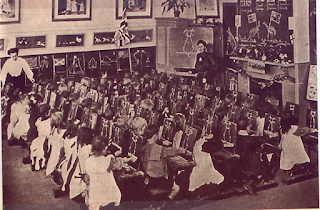Educators as agile and adaptive pedagogues
I often read that in the 1970's the idea of 'quality' teaching began to transition from teacher-directed, explained from a behavourist perspective as direct instruction for replication of the teachers knowledge or the knowledge provided by the teacher and the skills and abilities demonstrated by the teacher, to student centred. The 'problem' with the teacher-centred paradigm is often explained as students becoming passive recipients and regurgitators in the learning process.
Student centred is often explained from a constructivist perspective as creating a learning context for the student to progress from where they are, not from where the teacher is. The idea of 'guiding' or 'facilitating' from the constructivist perspective contrasted the idea of 'instructing' from a behavourist perspective. However, guiding and facilitating are increasingly becoming questioned as it can become misinterpreted as passivity on the part of the teacher once students are 'underway'.
Similar is found in another educative endeavour, sport coaching with the coach centred / player centred paradigm shift.
Now, it seems that in some literature there are two education paradigms confronted with the same critique: passivity.
Is there a middle ground between teacher (coach)-centred potential for learner passivity and student (player)-centred potential for teacher (coach) passivity? Perhaps, Olinger's (2018) idea of the agile and adaptive educator that is neither directive instructor or guide/facilitator/knowledge navigator, but provocative collaborator encouraging in students (players) the ability to learn and apply their learning by knowing when to be directive and when to be guiding. The sentiment of this idea seems much like Mosston's Spectrum of Teaching Styles concept of 'mobility ability' within the Spectrum as all teaching styles have a purpose, and thus no one teaching style is 'better' or 'worse' than another. Mosston explained that the pedagogical mastery of the teacher is designing alignment from desired learning outcome (the teaching post-impact outcome) to pedagogy (the teaching impact) to task design (the pre-impact design for impact).
Olinger (2018) suggested the agile and adaptive educator designs learning encounters that are low-threat and high-challenge, where every student has an entry point. This reminded me of Mosston's metaphor of teaching high jump using a slanty rope rather than a rope set at a 'one height for all' challenge point. Today, we might say this is differentiation by challenge point.
Olinger, R. (2018). Meddling in the middle. A role for teachers in the 21st Century. see here
The purpose of the agile and adaptive educator is to make learning personally meaningful to the learner. Developing meaningful understanding in games and sport teaching is something Brendon Hyndman and I discuss and elaborate upon in this paper here. Personal meaning is connected to relevance, an idea that Dewey (1913) recognised as motivating and energising learning. So, the idea that relevance is personal/beholden to the individual and a 'powerful' motivator of learning is not a new concept; but it often appears elusive to educators and sport coaches.
Dewey, J. (1913). Interest and effort in education. Houghton Mifflin.
Borrowing from Prinski and colleagues (2018), this elusiveness may be because teachers and coaches don't plan across three domains of relevance, giving thought perhaps to only the first domain of relevance:
#Personal association: creating connections to the individual
#Personal usefulness: what is to be learnt is useful to the individual achieving one of their goals or desires
#Personal identification: what is to be learnt is perceived as connected to the person's identity
See the full article here
I think that it would be interesting to see what outcomes might be obtained by PE teachers and youth sport coaches purposefully planning with those three domains of relevance at the forefront of mind.
Thanks for stopping by and reading this blog. If you would like to connect with the ideas here or any of the ideas I have blogged about, you can contact via my email here



Comments
Post a Comment